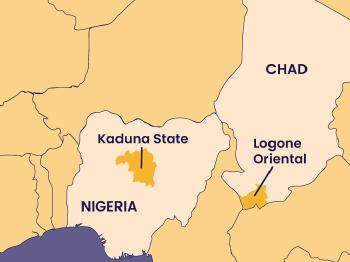Some Christians in Chad are opposing constitutional reforms requiring politicians to swear a religious oath of office, as well as plans to formalise the payment of “blood money” for some crimes, in line with sharia law. The constitutional changes also amend presidential terms, potentially enabling the sitting president, Idriss Déby, a Muslim who came to power in a coup in 1990, to stay in post until 2033.
The country’s previous constitution states that Chad, which has a Muslim majority with a substantial Christian minority, is a secular republic.
Christians are primarily opposing the compulsory oath of office on the grounds that it goes against the Biblical injunction not take oaths (Matthew 5:33-37) and breaks with the country’s secular constitutional tradition. As Christian groups abstained from composing a Christian oath of office in protest at the changes, the only oath included in the new constitution is one proposed by the the High Council of Islamic Affairs of Chad requiring politicians to swear “in the name of Allah the All Mighty”.

Image source: Rama
On 10 May, a Christian minister refused to recite the new, compulsory oath of office, instead replacing the name “Allah” with the French name for God (“Dieu”). She was initially ordered to take her seat by the Chairman of the Constitutional Court, but the court later agreed to accept her amended phrasing. Another Christian who refused entirely to swear on the Bible was removed from her post as a political advisor and replaced with a Muslim.
Christians have also protested against proposals to formalise the payment of diya (“blood money”) to the families of victims for some crimes. Diya is a concept in sharia law, in which compulsory monetary compensation is paid by the perpetrator of a crime to victims or their families, in cases of death or injury. According to sharia, female or non-Muslim victims receive less compensation than Muslim victims who have suffered in the same way.
Full details of how blood money payments might be formalised in Chad are not yet known, but it is understood that implementation could potentially make entire communities liable. Christians have raised concerns that Christian communities could, effectively, be punished for crimes committed by individuals from their community against Muslims.
Representatives of Evangelical Christians have written a formal letter to the speaker of the National Assembly, calling for Christians to be exempt from diya , rejecting the requirement for politicians to swear an oath and calling on the government to respect the country’s secular status.
The constitutional changes were introduced without a referendum, following a vote in the Chad National Assembly on 30 April 2018.
From Barnabas Fund contacts

